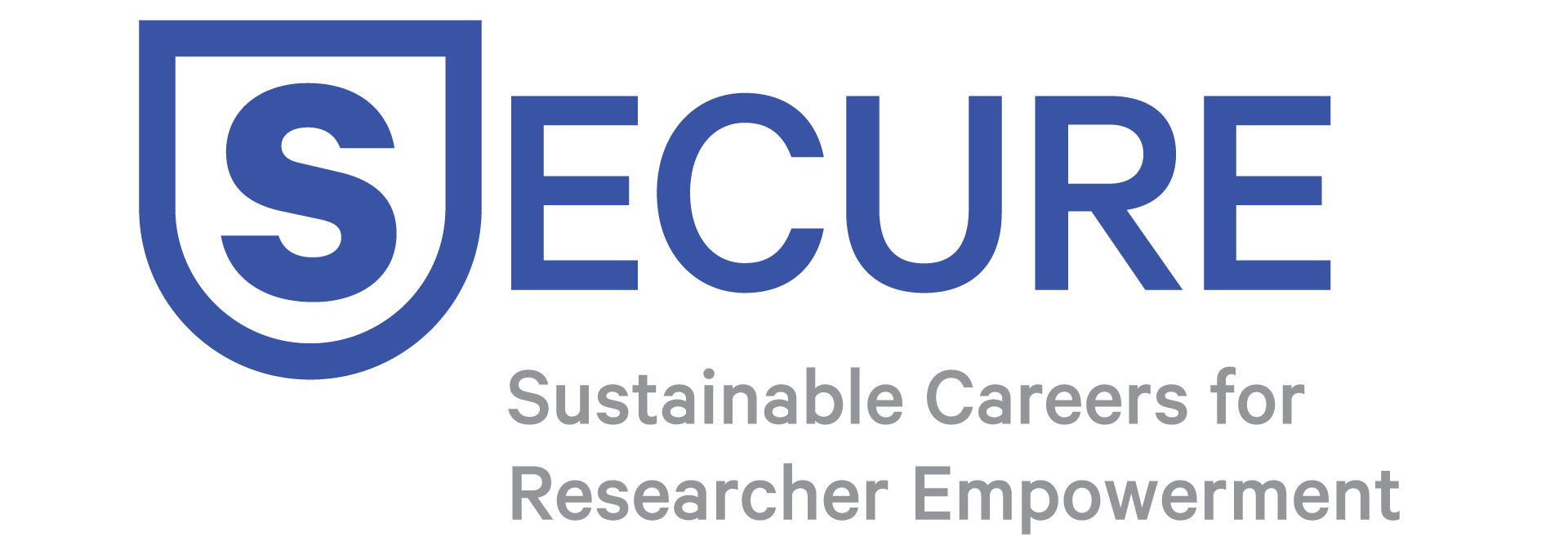Addressing societal challenges and global issues by enhancing scientific and technological excellence in Europe is, more than ever, the most appropriate path to build a more sustainable and resilient future for all European citizens.

Europe has always been considered a region where changes in society are driven by innovative ideas. Nowadays, when knowledge and research skills are fundamental precursors for progress, innovation, and economic prosperity, it is natural to assume that scientists who steer that progress should have the best possible working conditions. Unfortunately, that is not the reality, especially if we consider early-career researchers (ECRs). They face numerous issues that we could classify under the term career precarity.
Although policymakers have been aware of such an issue for a relatively long time, the current research career path in Europe still carries many challenges, including insufficient funding available to researchers, limited career prospects, lack of job security, poor working conditions, shortage of opportunities for professional development and mobility, as well as inadequate recognition of non-academic career paths, etc. The fundamental problems have already been addressed in the EC document Towards a European Framework for Research Careers (2011): The researchers’ labor market is fragmented nationally, and there is segregation between careers in academia, industry, and other sectors. There is cross-country and cross-sector mobility, but many barriers remain. Career choices are often irreversible cause it can be arduous to move between the sectors. Research careers frequently do not have a clear and transparent perspective; researchers may not be aware of the range of opportunities across employment sectors early in their careers. Employers are not always clear about the competencies researchers have and the benefits they could bring to their company.
The issues or challenges we are speaking of are common across Europe. The only difference is that they are more pronounced in some places and less in others. For example, in Germany, junior researchers account for 20% compared to seniors, who make up 80% of the permanently employed due to the national habilitation system and their tenure track model. Still, the situation is somewhat better than in the other EU countries. However, it seems that better times are ahead. The European Commission and the Council of the European Union are engaged to overcome these impediments. Almost 20 years since the Charter for Researchers and Code of Conduct for the Recruitment of Researchers (2005) was published, we are witnessing not only its revision but also the active engagement of the entire community in establishing an enhanced and sustainable research environment. Under the current European Research Area (ERA), Action 4 (Promoting attractive and sustainable research careers, balanced talent circulation, and international, transdisciplinary, and inter-sectoral mobility across the ERA) aims to improve the quality and attractiveness of research careers in Europe. The specific objectives of Action 4 include the installation of a set of quality standards for research careers, the guidelines for the assessment and evaluation of research careers, and the promotion of best practices that support research careers across Europe. Accordingly, the current updating of the Charter and Code includes concepts such as open science and gender equality, as well as broadening the focus to careers outside academia and strengthening the links between research and innovation.

The most concrete answer to the lack of career development opportunities for early-career researchers is the European Research Area and Innovation Committee’s document in progress: European Framework for Research Careers (EFRC). The framework consists of 8 pillars that define the role of researchers and other professions in the ERA (pillar 1), recognize the research profession, including their interoperability and comparability (pillar 2), address the recruitment and working conditions (pillar 3), enhance the skillset and training of researchers for inter-sectoral and inter-disciplinary careers and entrepreneurship and innovation (pillar 4), improve programs and concepts related to career development and progression (pillar 5), contribute to a balanced circulation of talents and to attract more researcher to Europe (pillar 6), support actions for research careers (pillar 7), and implement a monitoring system of research careers among others to provide researchers a clearer vision of the challenges and opportunities in the ERA (pillar 8).
In addition to the mentioned proposals, which are of fundamental importance when addressing these challenges, there are several more significant ones for this topic. Some introduced their research career frameworks, other provided reports, recommendations, remarks, or statements. Among these is the SECURE Research Career Framework (RCF) with Tenure Track-Like Models (TTL models) intended to reduce career precarity. The SECURE RCF will follow the guiding principles of key policy developments, including transparency, merit-based research career systems across Europe, gender equality, and open science. Anyhow, RCF will be aligned with the new EFRC, currently developed by the EC, and connected to its eight relevant pillars, but it will also produce a new and unique framework that allows alignment with institutional practices and policies. In such a frame, considering criteria referring to a fair and competitive selection process, appropriate salary level, and a transparent evaluation system, one of the main challenges should be how TTL models could deal with cross-border social issues related to variance in legality, culture, and administrative systems.
SECURE will test aspects of the RCF and TTL models in trials in four research-performing organizations (RPO), one research funding organization (RFO), and one recruitment agency. The trial organizations will first conduct a scoping exercise to map the RCF onto their existing policies and activities for research careers before developing integration plans on how to include the RCF into existing policies and activities. The trial organizations will develop action plans, selecting relevant aspects from the integration plans to test and implement during the trials. SECURE will mainstream the RCF and TTL models through a series of policy briefs and a summit that explain the key aspects of the RCF and TTL models to the relevant organizations employing researchers.



